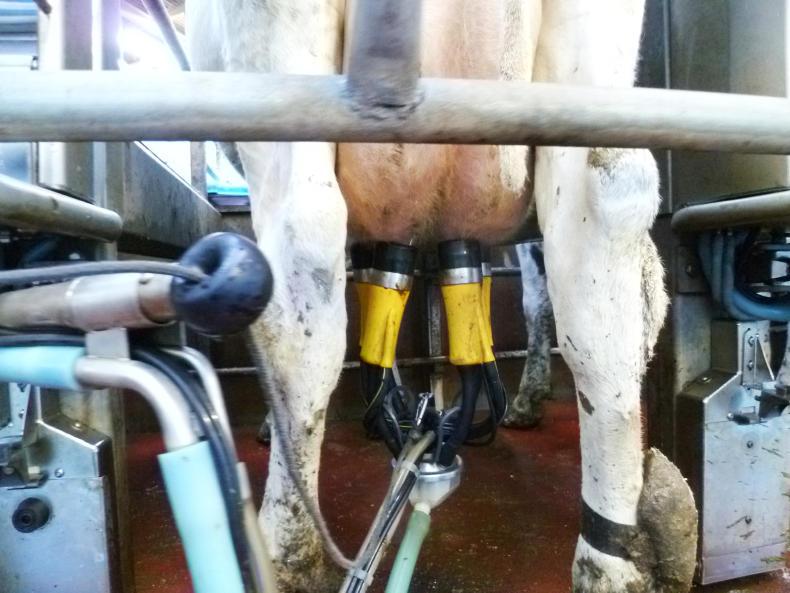A letter posted out to all members of United Dairy Farmers/Dale Farm this week has confirmed that the board of the NI-based co-op has decided to allow dairy farmers selling milk to other processors to return as suppliers of Dale Farm.
The move is significant, as since deregulation of milk marketing in NI back in 1995, and the subsequent formation of United Dairy Farmers, any farmers who left to supply other co-ops did not have a route back into the society.
In that period, incentives offered mainly by co-ops based in the Republic of Ireland, attracted to NI by the relatively flat year-round supply, has meant that they now control more than 50% of the NI milk pool.
That situation was tolerable while Dale Farm had more milk than it was able to process. But, in recent times, the combination of retirements from dairy farming, loss of producers to other co-ops and investment in own processing capacity, has actually left the co-op short of milk during winter months. That ultimately creates inefficiencies and adds costs to the detriment of members – continued erosion in supply is not an option in the longer term.
However, it is an area where new Dale Farm chief Nick Whelan has had to tread carefully, given that there has traditionally been a strong feeling within some of the membership against allowing previous members back in. To help counter those concerns, the member loyalty bonus was increased from 0.1p/l to 0.3p/l from September onwards. Anyone coming back will not get this 0.3p/l bonus. The situation for new entrants to dairying is different – they can come in as members, but must pay in at 0.25p/l for up to five years. Also, existing members will be given priority in any new fixed-price milk schemes which could become available in the coming months.
Speaking to the Irish Farmers Journal, Nick Whelan confirmed that new suppliers will have a supply contract with a rolling notice period of 12 months on either side. He is keen to pick up new entrants and already has some in the pipeline .“We want Dale Farm to be seen as the place to be for them,” he said. However, while he wants to be in a position to react if a competitor targets members, he does not want to start a milk war for existing dairy farmers. “We are just saying that the choice is yours. We are not going out knocking on doors. But if you approach us, hopefully you will find that we are more than accommodating,” he said.
Anyone who approaches Dale Farm will be assessed against a set of criteria. There is no requirement around size, but the co-op is being selective in other areas, in particular, favouring autumn-calving herds or suppliers with a relatively flat supply profile. In reality, not everyone left United on good terms, and there are some relationships that will never be mended on either side.
Co-op ethos
One thing that Whelan is very clear on is that there will be no special deals offered to individuals to entice them in. “Never – there will be no deals. We have a very strong co-op ethos,” he said.
Ultimately, however, he is acutely aware that actions speak louder than words and growing the Dale Farm milk pool will be dictated by its ability to deliver a competitive milk price.
“It is down to us to pay a strong milk price. Watch us on milk price – we aim to be constantly competitive,” said Whelan. His confidence is built on recent investments in cheese processing at Dunmanbridge, and with Brexit looming, Dale Farm is in a strong position to supply British retailers with British cheese, with no concerns about currency movements or the imposition of tariffs.
While getting new suppliers on board is one thing, perhaps more importantly are efforts to encourage existing suppliers to produce more milk. “We want to grow our own members. We have head-room for 10% growth in our existing supply base,” said Whelan. In September, Dale Farm announced a 4p/l incentive on incremental milk produced in October to December 2016. In this week’s letter to suppliers, the co-op confirmed that the scheme will again be offered in 2017, when the bonus will be a minimum of 4p/l. In addition, a 2p/l winter bonus will be applied on all milk supplied in October to December 2016 and it will be a minimum of 2p/l for the same months in 2017.






 This is a subscriber-only article
This is a subscriber-only article










SHARING OPTIONS: